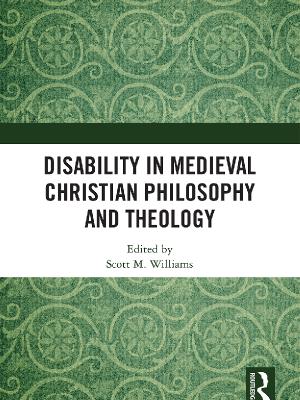bookin
Active member

Disability in Medieval Christian Philosophy and Theology
General: :Ebook
Format: epub
Size: 3.76 MB
Description: This book uses the tools of analytic philosophy of disability (and disability studies more generally) and close readings of medieval Christian philosophical and theological texts in order to survey what these thinkers said about what today we call "disability." The chapters compare what these medieval authors say with modern and contemporary philosophers and theologians of disability. This dual approach enriches our understanding of the history of disability in medieval Christian philosophy and theology and opens up new avenues of research for contemporary scholars working on disability. The volume is divided into three parts. Part I addresses theoretical frameworks regarding disability, particularly on questions about the definition(s) of "disability" and how disability relates to well-being. The chapters are then divided into two further parts in order to reflect ways that medieval philosophers and theologians theorized about disability. Part II is on disability in this life, and Part III is on disability in the afterlife. Taken as a whole, these chapters support two general observations. First, these philosophical theologians sometimes resist Greco-Roman ableist views by means of theological and philosophical anti-ableist arguments and counterexamples. Here we find some surprising disability-positive perspectives that are built into different accounts of a happy human life. We also find equal dignity of all human beings no matter ability or disability. Second, some of the seeds for modern and contemporary ableist views were developed in medieval Christian philosophy and theology, especially with regard to personhood and rationality, an intellectualist interpretation of the imago Dei, and the identification of human dignity with the use of reason. This volume surveys disability across a wide range of medieval Christian writers from the time of Augustine (4th century) up to Francisco Surez (17th century). It will be of interest to scholars and graduate students working in medieval philosophy and theology or disability studies.
Book:
Categories:N/A
Title: Disability in Medieval Christian Philosophy and Theology
Author: Scott M. Williams;
Language: English
Subjects: N/A
ISBN: N/A
Total pages: N/A
Download from RapidGator
Download from NitroFlare
